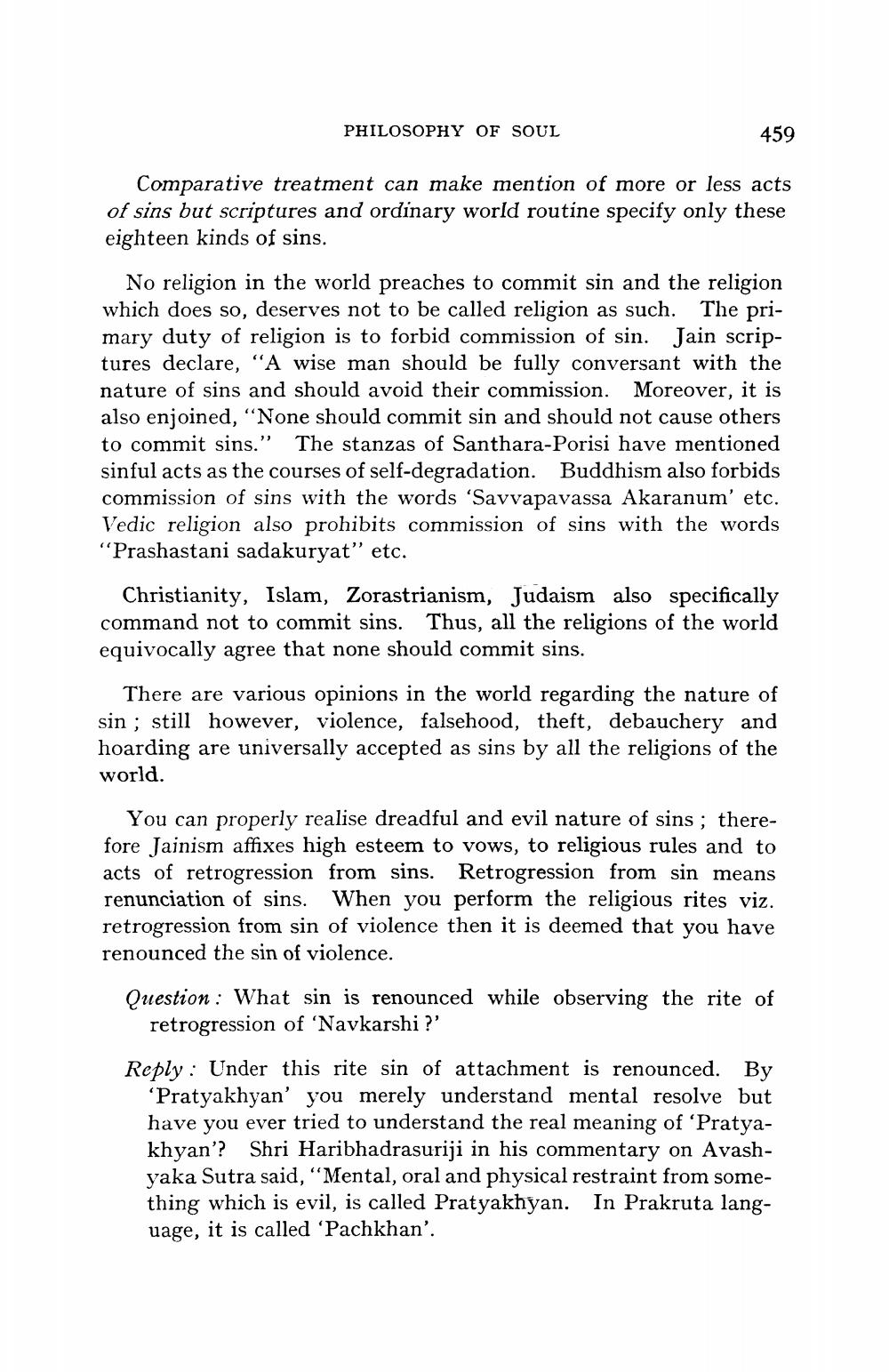________________
PHILOSOPHY OF SOUL
459
Comparative treatment can make mention of more or less acts of sins but scriptures and ordinary world routine specify only these eighteen kinds of sins.
No religion in the world preaches to commit sin and the religion which does so, deserves not to be called religion as such. The primary duty of religion is to forbid commission of sin. Jain scriptures declare, “A wise man should be fully conversant with the nature of sins and should avoid their commission. Moreover, it is also enjoined, “None should commit sin and should not cause others to commit sins." The stanzas of Santhara-Porisi have mentioned sinful acts as the courses of self-degradation. Buddhism also forbids commission of sins with the words 'Savvapavassa Akaranum' etc. Vedic religion also prohibits commission of sins with the words "Prashastani sadakuryat” etc.
Christianity, Islam, Zorastrianism, Judaism also specifically command not to commit sins. Thus, all the religions of the world equivocally agree that none should commit sins.
There are various opinions in the world regarding the nature of sin; still however, violence, falsehood, theft, debauchery and hoarding are universally accepted as sins by all the religions of the world.
You can properly realise dreadful and evil nature of sins; there
e Jainism affixes high esteem to vows, to religious rules and to acts of retrogression from sins. Retrogression from sin means renunciation of sins. When you perform the religious rites viz. retrogression from sin of violence then it is deemed that you have renounced the sin of violence.
Question: What sin is renounced while observing the rite of
retrogression of Navkarshi ?'
Reply : Under this rite sin of attachment is renounced. By
‘Pratyakhyan' you merely understand mental resolve but have you ever tried to understand the real meaning of 'Pratyakhyan'? Shri Haribhadrasuriji in his commentary on Avashyaka Sutra said, "Mental, oral and physical restraint from something which is evil, is called Pratyakhyan. In Prakruta language, it is called 'Pachkhan'.




